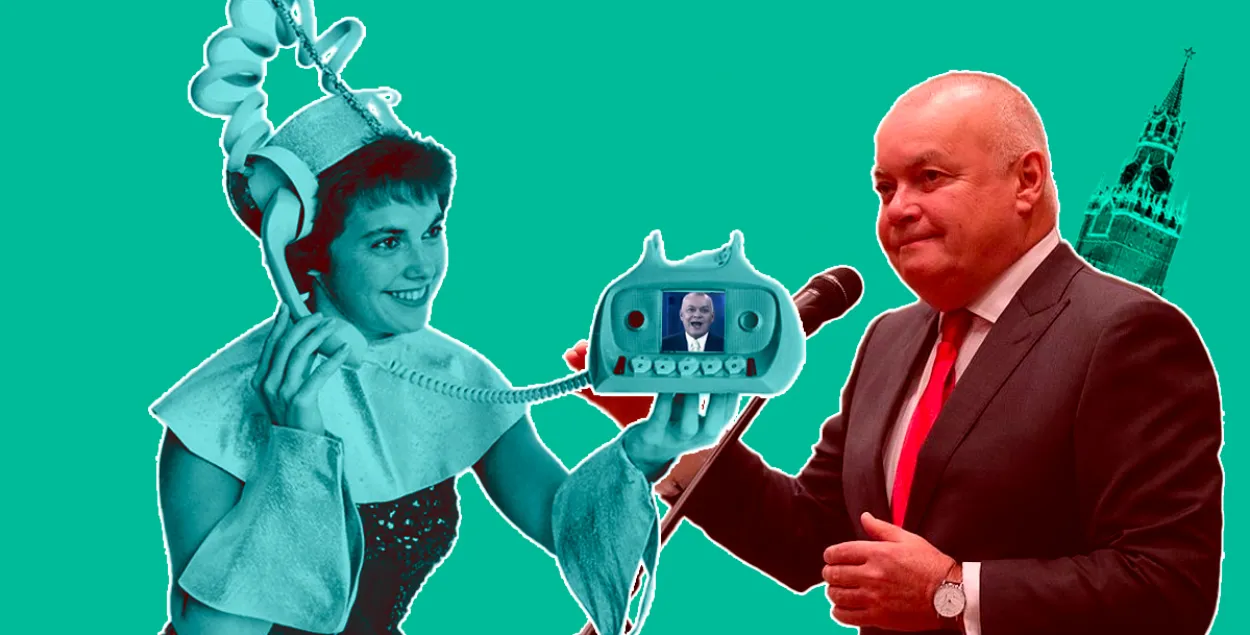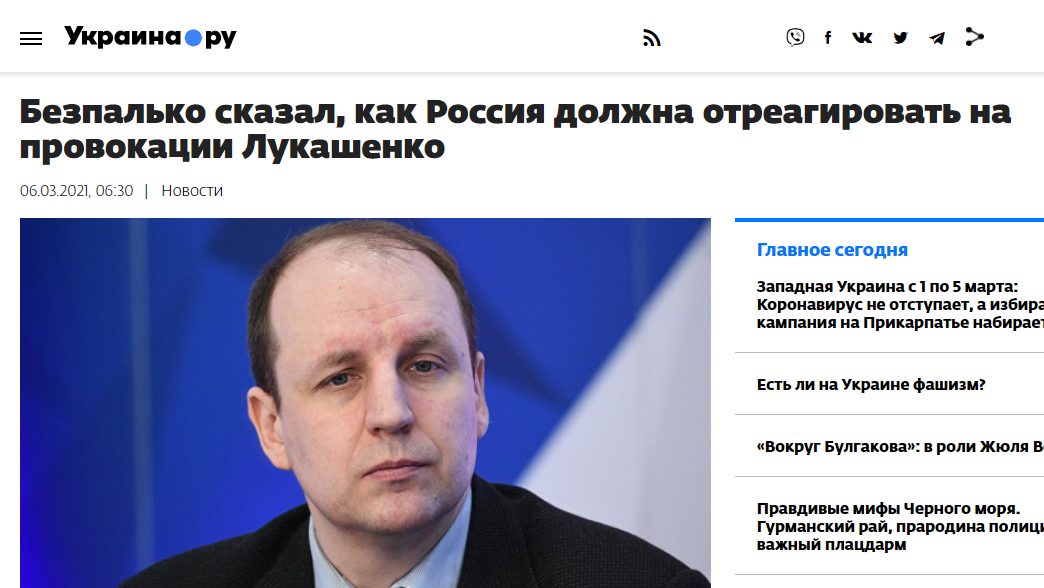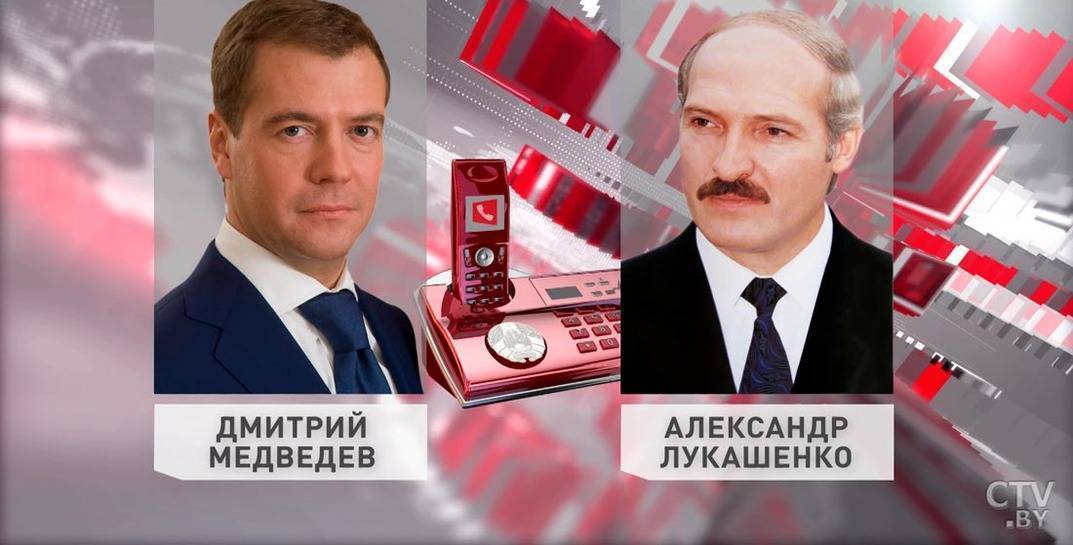Kremlin propaganda gets creative about Russia-Belarus relations

Belarus on the agenda of Russian propaganda / collage by Euroradio
Belarus is no longer high on the agenda of the Russian propaganda media: at present they are more concerned with Joe Biden, Volodymyr Zelensky, and Nikol Pashinyan. However, the propagandists can't forget about Belarus completely. Especially after the meeting between Alyaksandr Lukashenka and Vladimir Putin in Sochi.
These are the thoughts the Russian media promote in connection with Belarus.
Family, friends, brothers
"And if we unite even closer?"
"If we unite... This is my personal opinion: I'm for it".
This is a fragment of the reportage "Vesti Nedeli with Dmitry Kiselyov" on the TV channel "Russia". It's a dialog between an employee of the TV channel and an employee of a Belarusian company.
Similar messages can be found in conversations with other guests. By a surprising coincidence, they all say that "Russia is the closest to us," "we wouldn't have done anything without Russia" and "we're all Slavs anyway".
The idea is simple: the Belarusians and the Russians are practically one people, hence interethnic love.
The contrast, however, is interesting: in the introduction to the report, Dmitry Kiselev talks about a meeting between Lukashenka and Putin, but then he talks only about the closeness at the level of peoples and industries.
The West is to blame for everything (of course)
A notable part of propaganda stories is traditionally devoted to how "the rotten West" is to blame for the Belarusian and Russian protests. And, of course, Brussels and Washington want to break the close ties between the two countries.

"The events in Belarus and Russia are not just similar, but have, I believe, a common origin," says Vladimir Mamontov, president of "Izvestia" editorial board, in ImhoClub. " The policy of outside forces is aimed at deterring the Russian state and the eastern part of the world as a whole. Belarus has been a long-standing and loyal ally of Russia. Breaking this bond politically, economically and militarily is the dream of those who are not willing to view us as equals, but prefer to see us as a "gas station", a giant platform of rich natural resources and cheap labor".
The author of RuBaltic, Alexander Nosovich, who also likes to speak on Sonar, Sputnik, Ukraine.ru and other similar resources, sees benefit in the "actions of the West".

"...It only remains to add that the Baltic States and Ukraine have invested in creating an unfavorable military-strategic conjuncture for themselves, when they supported with squealing and hooting the destabilization of Belarus and applauded the mass disturbances in the neighboring country. Their stupidity works exclusively for the interests of Russia, strengthening the Union State".
In addition to Lithuania, Estonia and Poland, Svyatlana Tsikhanouskaya, who is allegedly their "puppet", is often mentioned in the context of "Western actions". This narrative has been promoted by some propaganda media since at least the end of August.
Or is Lukashenka the main problem after all?
Some media allow themselves to attack Lukashenka. These include not only Regnum and EAdaily, which have for years made no secret of their antipathy toward the Belarusian leader, but also, for example, Ukraina.ru, which is part of the Russia Today news agency headed by Margarita Simonyan and Dmitry Kiselev.
For example, political analyst Bogdan Bezpalko recently said that the attitude of Belarusians toward Russia is deteriorating because Moscow decided to support Lukashenka.
"This has indeed affected the growth of anti-Russian sentiment, because a large part of the population has a negative attitude to Lukashenka, but still maintains sympathy for Russia. And at the same time, they would be quiet about the Union State, as well as about the merger, confederation or any kind of unified state," he says.

There is also an interview with political scientist Evgeny Konstantinov who says that Lukashenka is using Russia for his own purposes and at the same time he will try to return to a "multi-vector approach". He also echoes the thoughts about the blow to sympathy for Russia on the part of Belarusians.
"There is nothing surprising that he speaks about it. I have already said many times before that the Belarusian regime is simply using Russia for its own purposes. Nothing has moved from the deadlock in the area of the Union State over the past six months. Now that the situation has temporarily stabilized, Lukashenka will try to return to the previous state of affairs, that is, to multi-vectorism. This means that no progress in the Union construction is to be expected. Thus, Russia, having expressed its support for the dictatorship, received nothing but a blow to the sympathies of the Belarusians. As for the Union State, no one sees any future for it with Lukashenka".
It is curious: Simonyan came to Lukashenka for an interview in September, and it seems they parted as friends. And then all of a sudden "Russia, speaking out in support of dictatorship"!
Dima.... Anatolyevich... go f**k yourself
he statements of influential Russian telegram channels are, of course, more poignant. Including those that many associate with Russia's "top brass." As usual, they are full of "leaks" that are impossible to verify. It is possible to make assumptions about the sentiments existing in "certain circles".
"Several sources in Minsk reported that his eldest son Viktar Lukashenko has no intention of participating in the transit of power and does not see himself as head of state," says Nezygar. "Viktar Lukashenka is a supporter of close relations with Russia, which has repeatedly caused conflict with his father".
Another recent publication of Nezygar is about the role of businessman Dzmitry Mazepin. We have already reported about his possible ties to the new Belarusian portal.
"Dzmitry Mazepin, a native of Belarus, flies on a plane with the tail number M-insk. Mazepin, Kozak, and Oreshkin will help Medvedev negotiate a "soft transit" of power in Belarus with Lukashenka"
An amusing but completely implausible version of the phone conversation between Alyaksandr Lukashenka and Dmitry Medvedev is given by the SVR General.

"In general, the conversation is tedious and uninformative. Dmitry Medvedev was instructed to try to put pressure on Lukashenka on the issues on which Putin had failed to agree with Lukashenka the day before during a personal meeting in Sochi. The end of the conversation, when Dmitriy Anatolyevich began to persuade him to complete the transfer of power in Belarus by the end of this year, as Lukashenka had promised Putin back in September last year, is interesting. Then the end of the conversation follows as follows: Medvedev: "Alexander Grigorievich, you understand how displeased Vladimir Vladimirovich is with the way you do not keep your word and do not fulfill your obligations". Lukashenka interrupts: "Dima... Anatolyevich... go f**k yourself. And take Vladimir Vladimirovich with you. Don't tell me what to do. You sort it out for yourself first, and then you'll be giving out advice. Good day". That was the end of the conversation.



















